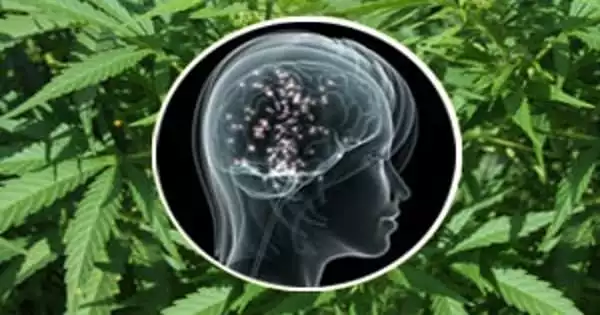According to a new study, children who were exposed to cannabis in utero may be at a higher risk for some health disorders as they grow older. Obesity and excessive blood sugar were more likely in these youngsters. This study adds to the growing body of evidence associating cannabis usage during pregnancy to a range of developmental and health problems in offspring.
According to a new study published in the Endocrine Society’s Journal of Clinical Endocrinology and Metabolism, cannabis usage among pregnant women is on the rise and may be connected with unfavorable health consequences in children.
According to a 2016 Colorado research, up to 22% of pregnant women had measurable quantities of THC in their bodies. Women who use cannabis during pregnancy, including tetrahydrocannabinol (THC) and cannabidiol (CBD), may put their child at risk for low birth weight and behavioral issues. Cannabinoids may also raise a child’s risk of obesity and excessive blood sugar in the future.
The children in the study who had been exposed to cannabis in the pregnancy had 2.6 percent more fat mass and higher fasting glucose levels than those who had not been exposed to cannabis in the womb. The study adds to the growing body of data that cannabis usage during pregnancy can harm a baby’s health and development.
We discovered that cannabis usage during pregnancy was associated with higher fat mass percentage and fasting glucose levels in 5-year-old children. We would advise mothers not to use cannabis while pregnant or breastfeeding in order to reduce the risk of unfavorable health impacts in their children.
Brianna Moore
CBD’s appeal stems in part from its marketing as “nonpsychoactive,” implying that consumers can enjoy health advantages from the plant without getting high. CBD is marketed as a treatment for anxiety, sadness, and post-traumatic stress disorder. It is also advertised as a sleep aid.
“We discovered that cannabis usage during pregnancy was associated with higher fat mass percentage and fasting glucose levels in 5-year-old children,” said Brianna Moore, Ph.D., of the Colorado School of Public Health in Aurora, Colo. “We would advise mothers not to use cannabis while pregnant or breastfeeding in order to reduce the risk of unfavorable health impacts in their children.”

The researchers looked at urine samples from 103 pregnant women, 15% of whom had measurable quantities of cannabinoids (such THC and CBD) in their urine. When compared to children who were not exposed to cannabis during pregnancy, these mothers’ 5-year-old children had higher fat mass and fasting glucose levels.
“More research is needed to understand how cannabinoids exposure during pregnancy may affect the progeny,” Moore said.
The study included 103 mother-child pairs from Colorado. The researchers obtained urine samples from the pregnant women and discovered that 15% of them had measurable quantities of cannabinoids in their bodies, including THC and CBD, implying that the fetuses had been exposed to the cannabinoids.
The study’s expectant moms were recruited in Colorado through Healthy Start, a national program that aims to improve health outcomes before, during, and after pregnancy. Among the 103 pregnant women tested, 15% exhibited detectable quantities of different cannabinoids in their urine, including THC (tetrahydrocannabinol), a compound in the marijuana plant with psychoactive qualities that produces a “high.”
When the children were about five years old, a follow-up appointment was scheduled, during which blood was drawn following an overnight fast. The fat mass of the children was also measured. Children who had been exposed to cannabis while in the womb were more likely to develop obesity and excessive blood sugar. It’s unknown why embryonic cannabis exposure could have had this effect.
Fetuses who are exposed to cannabis have a higher risk of developing Type 2 diabetes, obesity, and metabolic syndrome later in life. Developmental and behavioral impairments, such as visual problem-solving difficulties and lower attention span, have also been observed in children exposed to cannabis in utero. Babies of active cannabis users are more likely to have intrauterine growth problems and low birth weight.















